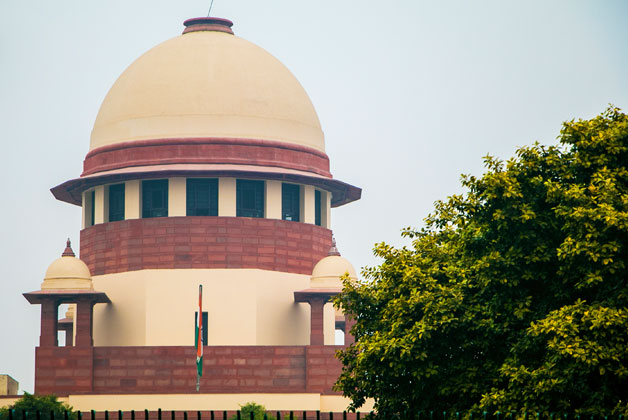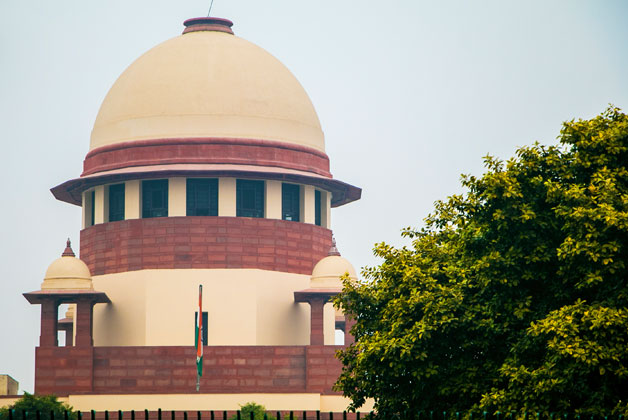

With the world still reeling under the impact of a pandemic and a subsequent lockdown to control its outbreak, there has been a surge in the reports of human rights violations, abuse and denial of civil liberties. Victims have limited access to judicial institutions and services in this period, a situation akin to one where justice has been put on hold.
As of May 2020, the number of pending cases in Supreme Court and High Court stood at 59,670 and 46 lakh cases, respectively. A whopping 3.19 crore cases were pending at the district and subordinate court levels. Economic Survey 2018-19 has estimated that high courts need 361 additional judges, and districts and subordinate courts need 8,152 more judges in the next five years. Thus, a severely overburdened judiciary has not only caused an exorbitant increase in cost of accessing justice but has also resulted in undue harassment to the litigants. The expenditure ranges from 25,000-30,000 to a couple of lakhs per case.
India has had one of the longest and strictest lockdowns in the world. The clampdowns on movement have been a subject of condemnation. Police brutalities and the lack of clarity on protocols to be followed during the lockdown have questioned legitimacy of Rule of Law in the country. The oversights of the courts assumes significance during such a period, as totalitarian governments around the world use this opportunity to amass more power over their citizens. During this period, the government has also arrested several social activists on grounds of sedition and incitement of violence for democratic protests that occurred in the country prior to the pandemic. In the absence of a functional judicial mechanism, citizens will be left at the mercy of public officials.
In order to fight the spread of the infection, countries are deploying large-scale surveillance mechanisms and intrusive software to carry out contact-tracing and movement-monitoring. Individuals’concernsover data privacy and breach have been largely unheeded in the absence of overarching judicial supervision. There has been a spike in incidents of domestic violence and disputes, adding to the backlog of cases for the judiciary.
The exodus of migrants from cities to villages on foot is one of the most of disturbing humanitarian crisis of modern times. It will be a reminder of a human tragedy borne out of a governance failure.
Over 200 migrants died from accidents or exhaustion due to migration and about 115 people died from starvation and economic distress. Judicial activism to alleviate the sufferings of the migrant workers was an expected directive, the Supreme Court however took court took up the concerns of the migrants after initial reluctance and considerable delay.
While courts have started using video-conferencing and e-filing tools during the lockdown to re-open courts and provide access to justice, this is maybe end up being limited to the privileged urban population. Given that internet, smartphones and superior technology have not fully penetrated remote villages, access to justice will remain a challenge for the poor rural population. Furthermore, issues of client confidentiality and sanctity of court rooms may be compromised in a video conference format of court hearings.
Once lockdown is eased and courts resume to business, the burgeoning backlog of cases could be detriment to speedy and fair trial. In the light of growing violation of rule of law, justice delivery is as essential a service as health, public order or law enforcement and must not be inaccessible. Access to justice is a public good and is not prerogative of a select few. A democratic nation such as India cannot avert the role of judiciary even in times of crisis. The denial of justice to common people is the biggest travesty of human rights and individual freedom.
The pandemic requires the civil society to work alongside the judiciary in a concerted fashion to mitigate the afflictions of the public. A unique platform comprising over 500 legal & human rights specialists across the country has been developed to enable aggrieved parties and individuals to seek affordable and speedy solutions. Nyayakarta is the country's first advanced public grievance redressal platform with a panel of experts working extensively on people's issues. The team at Nyaykarta will undertake preliminary investigation, communication with the opposite party, communication with government authorities, consultation, and other such legal engagements.
Constitution of India guarantees free legal aid to poor and the vulnerable. However, free legal aid suffers from procedural constraints and systemic deficits. During the nationwide lockdown, vulnerable groups such as women, migrants, medical workers, students, and the poor have been exploited and dehumanised. Nyayakarta aims to offer completely free assistance to enable the marginalised to seek legal and institutional remedies. The seamless delivery of justice must continue unabated even in global catastrophes, and Nyayakarta is a noteworthy step in this direction.
